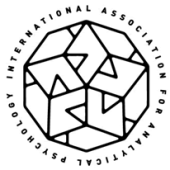
Ean was IGAP’s first convenor and remained a pillar for us, as teacher, analyst and supervisor, faithfully attending business and other meetings until his last years. In many ways, he could seem larger than life, with his height and military bearing, his love for a party and his great booming laugh. But this was just one expression of his deep and enduring commitment to living according to what he could discern of the ways of psyche, in all their complexity. As his widow Deike remembers, ‘Within a day he could be the fool, the saint, the sinner, the actor, the show-off or the gentle soul that heals…. He was well aware of his shadow, took full responsibility for it and allowed it to express itself at times. He never felt shame or remorse on these occasions as he considered all parts of himself as belonging to the totality of the psyche’.
In a sense, IGAP owes Ean its very existence.
When he returned from Zurich, he joined the Association of Jungian Analysts in London, and in 1982 he was elected chairman by majority vote of its members. But Gerhard Adler, its founder, could not accept this. Ean’s wild lifestyle, he felt – or so the story goes – woulddo the reputation of the group no good at all. The election was declared void on a technicality, and Ean and his allies felt forced to leave. This was the beginning of the grouping that eventually became IGAP.
The still unique breadth of its study programme was enriched from the start by Ean’s intellectual enthusiasm, continuing curiosity and the engaging quality of his seminars. He introduced the more esoteric byways of Jungian thought into the curriculum: Jung and Gnosticism was one of his early themes, for instance, and (together with Deike), the use of astrology and tarot in analysis.
The organisational Ean was another aspect of the man. ‘There may just be more important things in life than Jungian politics’, he once wryly remarked, ‘like friendship and ideas, and getting a life.’ But as he knew, Jungian organisations and politics also have their place and he gave a great deal to these. During his two spells as Convenor, IGAP benefited greatly from hispatient and humourous capacity for containing and defusing tricky situations, and his respect for both individuals and democratic decisions, even when he deeply disagreed
Ean gave IGAP a public presence too, through his broadcasts and writings, which included a series of programmes for the BBC on intimations of life after death. His own near-death experience in a car crash in Switzerland led him to a lasting devotion to the Black Madonna of Einsiedelnand thus to his major written work on the cult of the Black Virgin in Europe and beyond, whose exhaustive gazetteer is still the standard text for anyone who wants to discover these often hidden representations of Our Lady for themselves.
The public persona could also send ripples through Jungian circles. Ean was once representing IGAP at a meeting of the then four London groups, an unusual and somewhat anxious occasion, designed to dispel the mistrust and even hostility that in those days existed between them. The conciliatory theme was ‘How has my practice changed in the light of experience?’ When it came to Ean’s turn he began – or so the story goes: ‘I am glad to say that my practice has never changed one iota.’ The waves of shock and anger at what seemed a flippant response to a serious question went on breaking over IGAP’s reputation for quite some while.
The written text of that talk was actually a great deal more measured than that. Nevertheless, there was probably some devilment in the delivery – a touch of the trickster who upends the solemnities to bring new life. But there was also a serious point which those outraged delegates perhaps failed to appreciate. Ean was steadfast, to the point of obstinacy, in his Campaign for Real Jung. This campaign was not for any narrow or sectarian ends. For Ean, we are all here, as analysts and as people, to discern and honour the ways of psyche as it moves through our individual and collective lives. This is the enduring conviction that he brought to his work as an analyst – and it seems entirely in keeping that his last session with a supervisee finished only 40 minutesbefore he died.
Very many people can attest to the quality of Ean’s analytic work and the breadth of life experience and knowledge he so enthusiastically brought to it. As one of his analysands remembers: ‘Ean brought together the opposites of a sparkling intellect and a great capacity to feel deeply, a commitment to serious work but with a lightness of touch and an enormous sense of humour that made it all flow… His knowledge of world mythology and world religion meant he could find meaningful connections between my puny dreams and wider human experience, and this is the great gift of Jungian work: one is not alone with one’s “personal myth” .’
The quest to honour psyche, Ean felt, must also be the guiding principle for IGAP; psyche is what it is here to serve. When the organisation was 21, we asked his advice for the years ahead. He told us something that he himself had been advised at its foundation: ‘Find out what you’re good at and do that – and don’t worry about what other people are doing.’ Ean’s own life was surely a lesson in how to live by that.

